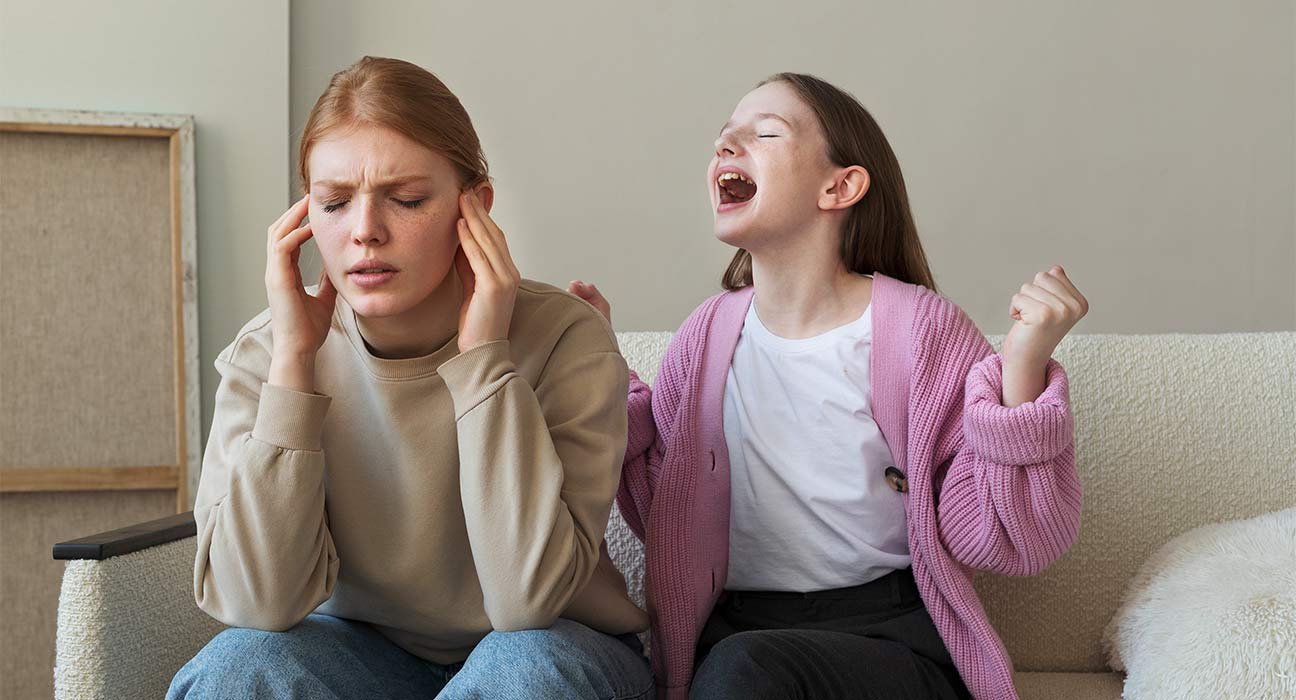In the past few months, there have been many cases of children being labelled by their school and/or their parents as having ADHD without a proper diagnosis. This is common among adults as well as using the term ADHD for those who have high energy while going about their day. These cases are prevalent in children studying in pre-primary schools. There was a case observed at a hospital with a clinical psychologist where the parents of a 4-year-old child came with complaints of being hyperactive and complaints from school about difficulty in controlling him.
Yes, children with ADHD are energetic or may be hyper, but it does not assure its diagnosis. Let’s understand what Attention Deficit Hyperactivity Disorder – ADHD is. It is a neurobehavioural disorder with core symptoms of inattention, hyperactivity and impulsivity along with behavioural issues at home, school and other social settings.
Read More; ADHD: Diagnosis, Types and Treatment
It is one of the most common childhood mental health disorders. Although onset occurs before the age of 7 years, many clinicians wait till the age of 7 years for a labelled diagnosis. This is because children tend to be active in their early years and take time to understand how to channel their energy and control their impulsivity effectively. Researches in India show that among primary school children (ages between 7-10 years), the rate of prevalence is 11.32% and is higher among males compared with females. (2013) some points to check which may help you as a parent while going to a psychiatrist and psychologist for a diagnosis are:
- My child is unable to sustain his attention for a long period.
- S/he doesn’t respond to a repeated instruction immediately.
- S/he is always on the go and is constantly fidgeting.
- S/he is very talkative and difficult to make quiet.
- S/he acts before thinking.
- S/he often gets hurt or gets hit by furniture while walking in the room and does not complain about it.
- S/he gets easily irritated
- S/he reacts quickly when teased and gets into a fight with the peers immediately.
- S/he struggles while planning, organizing and completing tasks
- S/he tends to lose things like his/ her toy, book etc often.
- They may seem to be less mature than their same-age peers. Their behaviour becomes more risk-taking and lacks judgment in social situations.
- His or her behaviour is the same at school and in other social scenarios.
If your child is able to control his or her impulses, expresses emotions in an age-appropriate way, responds appropriately at school and home, and is still hyper, he is probably only energetic. Overreaction by worried parents and schools can lead to misdiagnosis and maltreatment. Since one of the methods of treating the disorder is with medication, a misdiagnosed treatment could lead to severe repercussions in your child. On the other hand, channelling that energy in a constructive manner can bring joy to the child and your life.
Read More: The Hidden Struggles of Adult ADHD
Most mental health disorders are poorly understood by people which leads to many myths and misuse of the terms. It is important to understand the fact and only then seek and suggest help!
Myth: All Hyper Children have ADHD
Fact: ADHD has three core symptoms inattention, hyperactivity and impulsivity. As each child is different, these symptoms may not be present altogether or may vary in degree or maybe in different combinations.
Myth: People With Adhd Are Not Intelligent
Fact: They may have difficulty while coping with academic skills but by helping a child understand concepts in a creative manner with proper breaks, they will find academics more interesting and will pay attention longer. There is research data stating that many geniuses of the world are diagnosed with ADHD.
Myth: They cannot pay attention
Fact: The right combination of interest and challenge in a task will help any child, diagnosed or undiagnosed, pay more attention and sustain that attention for a longer period of time.
Myth: They will outgrow ADHD
Fact: Many times, parents do not accept their child’s diagnosis and believe that their child will be fine as she or he grows older. Research has shown that children diagnosed with ADHD carry it through their adulthood. Psychological theories have indicated that untreated ADHD further leads to defiant behaviour and behavioural disorders in children including conduct disorder and anti-social personality disorder.
Myth: ADHD only occurs in boys.
Fact: Several studies have shown that even girls are diagnosed with ADHD, although the prevalence rate is higher among boys. It may be difficult to diagnose as it is often misconstrued that girls have fewer symptoms of hyperactivity.
Myth: It can be managed with medications only.
Fact: ADHD does require medication as it is a neurobehavioral disorder but seeking psychotherapy is important as it helps with behavioural management and limits dependence on medication.
ADHD is challenging to manage and accepting it is not easy for a child or their parents. Loosely using the term ADHD to describe your child or even an adult affects their confidence and curbs them into a shell. While it is refreshing to see parents being attentive and open to seeking help for their children, the setback sometimes becomes the sugar rush (no pun intended) to misdiagnose the child by yourself.
So, there is more to being active and a bundle of energy for a child to be diagnosed with ADHD. If you as a parent or teacher are concerned about a child’s development, take a step forward. It is always good to check with a school counsellor or psychologist who can help you understand your child better and take effective measures. A proper clinical diagnosis is necessary to help treat the individual and more importantly to continue with psychotherapy to help the child to manage himself or herself in an effective way.
